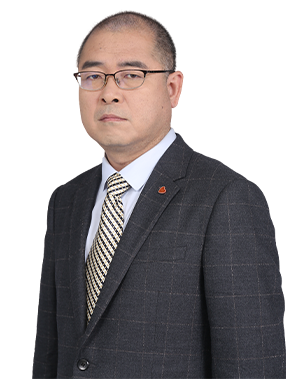Tripartite mediation mechanism in labor disputes
The tripartite mechanism for negotiating labor relations is a common practice in most market economy countries in the world. In the market economy environment, especially after the impact of the epidemic, establishing a tripartite coordination mechanism through government, trade unions, and enterprise organizations has become an inevitable choice to ensure harmonious and stable labor relations and maintain social stability.
In 1990, China ratified the Convention on the Promotion of International Labour Standards through Tripartite Consultation adopted at the 61st International Labour Conference held in Geneva in 1976, which established the right of employers and workers to establish autonomous and independent organizations and called for measures to promote effective consultation between government agencies at the national level and employers' and workers' organizations. Since then, other corresponding provisions have been gradually formulated at the legal level for the tripartite mechanism. For example, the second paragraph of Article 34 of the Trade Union Law, as amended on October 27, 2001, stipulates that the labor administrative departments of the people's governments at all levels should establish a tripartite negotiation mechanism for labor relations in conjunction with the representatives of the trade unions and enterprises at the same level to jointly study and solve major issues related to labor relations.
Specifically, "three parties" refer to government representatives, employee representatives, and enterprise organization representatives. China's trade union law and labor law clearly stipulate that the government representatives in the tripartite negotiation mechanism are held by the labor administrative department; Due to the tripartite negotiation mechanism for dealing with major issues related to basic labor relations, it is generally the national trade union or local federation of trade unions that participate on behalf of employees; With the development of various new enterprises, enterprise federations (entrepreneur associations) established throughout the country have gradually become representatives of enterprises.
At the present stage, many new problems have emerged in China's labor relations, such as tense labor relations, an increase in frequent mass incidents, and various media outlets that often overstate contradictions, leading to a strong tendency of public opinion. In the construction of the tripartite consultation mechanism, there are also issues such as the weak representation of labor and capital, and the unequal status of the tripartite interest subjects. Among the representatives of the tripartite mechanism, government representatives rely on the public power of the state, and employee representatives are protected by relevant laws such as the labor union law and labor law. In this practical situation, the author believes that law firms and professional lawyers should strengthen their contacts with enterprise representatives, engage in preventing relevant risks first, intervene actively and coordinate in matters to provide professional advice, and actively play their professionalism to better promote the balance of all parties in the tripartite mechanism, So as to better stabilize the position and role of the tripartite mechanism in solving major labor relations issues.
(This article is translated by software translator for reference only.)
Related recommendations
- Tax lawyers review the draft of the revised Tax Collection and Administration Law for soliciting opinions
- New Measures for Punishing "Dishonesty" by the Supreme People's Court at the Two Sessions in 2025 (Part 3): "Height Limit" Single Release Mechanism
- New Measures for Punishing "Dishonesty" by the Supreme People's Court at the Two Sessions in 2025 (Part 2): Grace Period System
- Interpretation of the Management Measures for Compliance Audit of Personal Information Protection - Feeling the Rhythm and Rhythm of Regulatory Flow



